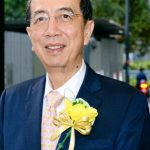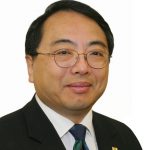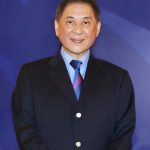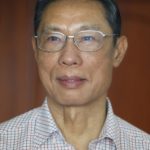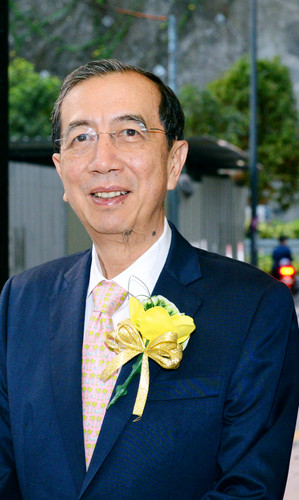 Ma Iao Lai
Ma Iao Lai
Every year, the University of Macau (UM) confers honorary doctorates on distinguished individuals with outstanding achievements and significant contributions to society. This year, five distinguished individuals, namely Mario Capecchi, Ma Iao Lai, Pai Hsien-yung, Tsui Lap-Chee, and Zhong Nanshan, will receive honorary doctorates from UM. Mario Capecchi and Zhong Nanshan will receive the Doctor of Science honoris causa degree. Ma Iao Lai will receive the Doctor of Business Administration honoris causa degree. Pai Hsien-yung will receive the Doctor of Letters honoris causa degree. Tsui Lap-Chee will receive the Doctor of Education honoris causa degree. Prof Mario Capecchi shared the Nobel Prize in Physiology or Medicine in 2007. He received his PhD degree in biophysics from Harvard University in 1967. Prof Capecchi is best known for his pioneering work on the development of gene targeting in mouse embryo-derived stem (ES) cells. This allows scientists to evaluate in detail the function of any gene during the developmental or post-developmental phase of a mouse. He has won numerous awards, including the Pezcoller Foundation-AACR International Award for Cancer Research in 2003, and the March of Dimes Prize in Developmental Biology in 2005. Ma Iao Lai is a renowned entrepreneur in Macao. He obtained a bachelor’s degree in economics from the Chinese University of Hong Kong in 1971. Ma is also an active philanthropist. In 2005, he founded the Meng Tak Charity Association, which has initiated and participated in various charity programmes in Macao and mainland China to reduce poverty, help children go to school, sponsor orphans, and care for the elderly, children and women in need. In addition, the association provides financial aid to children with congenital heart disease and funds cataract operations. Ma is the recipient of the Medal of Industrial and Commercial Merit from the Macao SAR government. He is currently a member of the National Committee of the Chinese People’s Political Consultative Conference (CPPCC) and deputy director of the Subcommittee of Hong Kong, Macao, and Taiwan Compatriots and Overseas Chinese of the CPPCC. Prof Pai Hsien-yung is an eminent Chinese writer. He received his master’s degree from the University of Iowa in 1965. Prof Pai has published many works, including short story collections Lonely Seventeen, Taipei People and The New Yorker, the essay collection Mo Ran Hui Shou (Suddenly Turning Back), and the novel Crystal Boys. His works have been translated into various languages and have been adapted into plays and films. Prof Pai is dedicated to promoting Chinese culture. He has produced a youth version of Peony Pavilion, a masterpiece of Kun opera, and it has been performed in different parts of the world. Prof Tsui Lap-Chee received his PhD degree from the University of Pittsburgh in 1979. He was the geneticist-in-chief and head of the Genetics and Genomic Biology Programme of the Research Institute of the Hospital for Sick Children and a co-founder (with Dr Steve Scherer) of the Centre for Applied Genomics. He has also served on the editorial boards of over 20 international peer-reviewed scientific journals, numerous scientific review panels, and many national and international advisory committees. Prof Tsui helped build the University of Hong Kong into a world-class institution during his term as its vice-chancellor and president. Prof Zhong Nanshan is a member of the Chinese Academy of Engineering in the Division of Medical and Health Engineering. He spearheaded a number of significant research projects in mainland China and holds 38 patents. Prof Zhong is known for his research on the prevention and treatment of respiratory diseases. In 2007, he obtained approval from the Chinese central government to establish the State Key Laboratory of Respiratory Disease. In 2013, he founded a clinical research centre for respiratory diseases. In addition, Prof Zhong has devised medical guidelines on treating asthma, chronic obstructive pulmonary diseases (COPD), cough, severe acute respiratory diseases (SARS), and highly pathogenic avian influenza (HPAI), in mainland China.
View gallery

